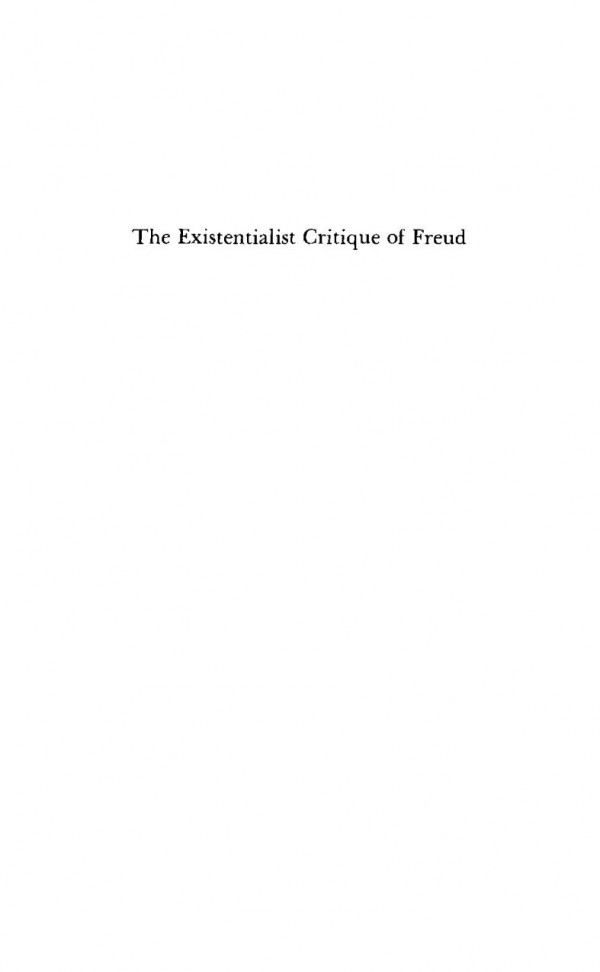

Most ebook files are in PDF format, so you can easily read them using various software such as Foxit Reader or directly on the Google Chrome browser.
Some ebook files are released by publishers in other formats such as .awz, .mobi, .epub, .fb2, etc. You may need to install specific software to read these formats on mobile/PC, such as Calibre.
Please read the tutorial at this link: https://ebookbell.com/faq
We offer FREE conversion to the popular formats you request; however, this may take some time. Therefore, right after payment, please email us, and we will try to provide the service as quickly as possible.
For some exceptional file formats or broken links (if any), please refrain from opening any disputes. Instead, email us first, and we will try to assist within a maximum of 6 hours.
EbookBell Team

4.1
40 reviewsAlthough largely sympathetic to Freud's clinical achievement, the existentialists criticized Freudian metapsychology as inappropriate to a truly humanistic psychology. Gerald Izenberg evaluates the critique of Freud in the work of two existential philosophers, Martin Heidegger and Jean-Paul Sartre, and two existential psychiatrists, Ludwig Binswanger and Medard Boss.
His book interprets the relationship of psychoanalysis and existentialism and traces the history of a crisis in the European rationalist tradition. The author unveils the positivist foundations of Freud's theory of meaning and discusses the reactions it provoked in the work of Binswanger, Boss, and Sartre. Probing beneath the methodological dispute, he shows that the argument involved a challenge to the conception of the self that had dominated European thought since the Enlightenment. Existentialism, reflecting the turmoil of the inter-war and post-war years, furnished a theory of motivation better able to account for Freud's clinical data than his own rationalist metapsychology. This theory made problematic the existentialist idea of authenticity and freedom, however, and so the attempt to provide a substitute ethic and concept of mental health ended in failure, although in the process the basic questions were posed that must be answered in any modern social theory.
Originally published in 1976.
The Princeton Legacy Library uses the latest print-on-demand technology to again make available previously out-of-print books from the distinguished backlist of Princeton University Press. These editions preserve the original texts of these important books while presenting them in durable paperback and hardcover editions. The goal of the Princeton Legacy Library is to vastly increase access to the rich scholarly heritage found in the thousands of books published by Princeton University Press since its founding in 1905.